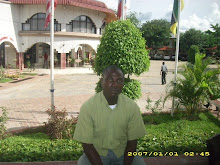Witchcraft has of late become the most popular anthem on people’s lips. Stories of little children and the aged confessing that they have killed relatives have made headlines both in our local dairies and radios in general. The country’s atmosphere has been contaminated with stories of some heartless elderly people teaching some innocent kids this abhorrent act. In general, acts of witchcraft have been appalling, breathtaking, and stunning.
Nonetheless, despite these evils of witchcraft being depressing and seeking immediate government attention, the government has been on the sidelines. It has kept mum, as if unperturbed by the countries entreaties for consideration. Though this might be mistaken for hyperbole, the fact is that the country has no single law on witchcraft. Above all, it is perfectly monstrous that witchcraft is not even recognized as a crime. A thorough search on the country’s law books indicate that the law that is there on witchcraft is not necessarily to punish “players” of the act but rather to punish those people who accuse them of witchcraft.
The question that reigns in people’s minds is then why is the government silent on witchcraft despite the public outcry that it should do something. This paper then seeks to act as a glimpse into the reasons why the government is at pains to recognize witchcraft as a crime.
The issue of formulating a policy on witchcraft is itself a hard nut to crack. You will agree with me that actors of this art comprise a secret community that does their activities at night when everybody is dead asleep and as a consequence, there is no concrete evidence to support its existence. Empirical evidence on witchcraft is hard to get and there is no concrete data or evidence to convince the policy makers or government to adopt a policy on witchcraft. Honestly, witchcraft powers and acts are all in the mind unverifiable and mostly unbelievable to the outside observers and as such the government does not recognize witchcraft accusations and consequently it cannot by propositions that claim that some sicknesses or diseases are caused by witchcraft. Science vindicates that the agents behind all the diseases are bacteria, parasites and viruses and that the cure is to be effected by medicine. It also remains worth mentioning here that traditional healing practices are often times taken as generally ineffective, frequently harmful and discouraged altogether.
While acknowledging the fact that sometimes there is evidence on witchcraft, most people nowadays do not believe in its existence as a result of enlightenment. This notion argues that beliefs in witchcraft exist in delusion. They are a way of explaining the unexplainable and accounting for the problems of evil. By attributing unmerited fortune, or unwonted success to illicit use of occult powers and substances by the human beings motivated by malice, greed or envy, the beliefs help to explain not simply how something happened but why it happened as it did and thus to provide moral support and psychological theories of causation.
Also if media reports are to go by, most accusations on people about witchcraft are false and proceed from malice on the part of the accusers. For instance it is a widely held belief in most villages that elderly people practice witchcraft and as such their families and the society at large regard them to be behind some evil acts. Sometimes persons suspected of witchcraft are attacked and driven from their homes. There is no official rod on measuring witchcraft and that accusations that stem from it are mostly just mere accusations that are products of hate and malice.
Despite, the church recognizing the existence of witchcraft, they strongly propose that the best way of dealing with this social catastrophe is not by witch hunts or seeking the help of witch doctors but by converting the witch through healing them and then reconciling them and reintegrating them into the community. It denies the commonly held axiom “once a witch always a witch” and do believe that witches can be reconciled and restored to the community.
It has also been noted with concern and regret that it is some selfish people that train other people’s children the art of witchcraft and as such it should immediately come to our attention that not all the people that practice witchcraft do it willingly. The sad thing is there is no way of telling or recognizing which people learnt the art willfully and those that it was imposed on them.
Finally, heavy reliance cannot be pressed on witchdoctors who can help in detecting witches through witch hunts and giving people charms to protect them from witchcraft because no one remedy offered gives a 100 percent protection because witches themselves always find a mechanism of circumventing the remedy. If somebody is also able to detect witches, it simply implies that he/she is a witch himself and as such they can not be trusted.
Hence, taking all these factors into consideration it can be seen that it is really difficult to formulate a policy in witchcraft.
Wednesday, January 14, 2009
Subscribe to:
Post Comments (Atom)





No comments:
Post a Comment